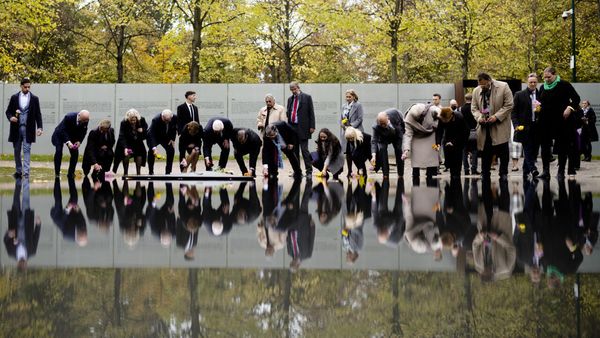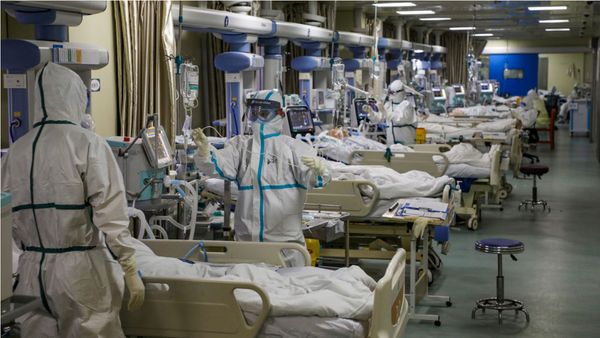
Kathmandu, Nepal - A year and a half after his first stint as prime minister abruptly ended, Khadga Prasad Sharma Oli returned on Thursday to the seat of government in the capital.
Oli, 65, was sworn in at the Shital Niwas as Nepal's 38th prime minister having secured nearly a two-thirds majority in the landmark parliamentary elections held late last year. He enjoys an unprecedented mandate to rule Nepal under a two-year-old post-war constitution.
Last October, the former communist revolutionary who spent 14 years in jail engineered a surprise left alliance that brought him an election victory.
However, the chairman of Communist Party of Nepal (Unified Marxist-Leninist), the largest party in the parliament known by its acronym UML, faces a host of challenges in delivering his election promise of political stability and economic growth.
Political analyst Jhalak Subedi told Al Jazeera the inauguration marked a significant step towards Nepal's republican journey after the autocratic monarchy was abolished in 2008.
"In the last 70 years, we have gone through a lot of political changes … from monarchy to federal republic. For the first time in our history, a body elected by people was able to deliver a constitution. This is the result of many political struggles in Nepal," he said.
Subedi said the events of past few years - the promulgation of the constitution in 2015 and successful elections at the local, provincial and federal level - demonstrated the Nepali people had truly become sovereign.
"Traditional and external players such as India and the royal palace used to be decisive in Nepali politics. They no longer play a major role. Now, increasingly, it's the elected officials who wield power," he said.
Challenges ahead
Addressing UML legislators at his party's headquarters in Kathmandu on Thursday, Oli pledged to work towards fulfilling his election pledges.
"I would exert my utmost efforts to further our country's national interest," he said.
Oli's first tenure between 2015 and 2016 - which ended after a coalition partner abandoned him for a rival party - was marked by a series of crises.
Six months after a devastating earthquake killed more than 9,000 people, the landlocked country faced a border blockade with India. Nepal imports nearly all of its oil and most food and medicine from India.
Oli ended up signing long-term trade and transit agreements with Nepal's northern neighbour China.
He also alienated the Madhesis minority group, which was demanding constitutional amendments to ensure more rights.
Subedi said Oli must walk a fine line in dealing with both India and China.
"Obviously our two neighbours will try to increase their influence. But it would serve Oli well if he strikes a balance in our relations with these countries," he said.
The future of Nepal's government will depend on negotiations between UML and its coalition partner, the Communist Party of Nepal (Maoist Centre), Subedi said.
The two communist parties have vowed to merge into one, but it remains to be seen if power-sharing can be achieved.
Talks on the merger have been off and on since the November-December elections but have failed to make headway.
Unconfirmed local media reports suggested the parties may unite with Oli and Maoist chief Pushpa Kamal Dahal as co-chairs.
Who is Khadga Prasad Sharma Oli?
Born on February 22, 1952, Oli was educated in the plains of Jhapa in eastern Nepal. A secondary school dropout, he became influenced by local communist figures in his teens.
At the age of 18, Oli became a member of the Nepal Communist Party. He began an underground life, as the erstwhile royal regime cracked down on communists.
Oli spent 14 years in jail for his involvement with radical communist politics, but over the past two decades has veered to the right.
Oli was elected as a member of parliament in elections in 1991, 1999, 2008 and 2013. He served as home minister in 1994 and foreign minister in 2007.
In February 2014, UML elected him as chairman.







